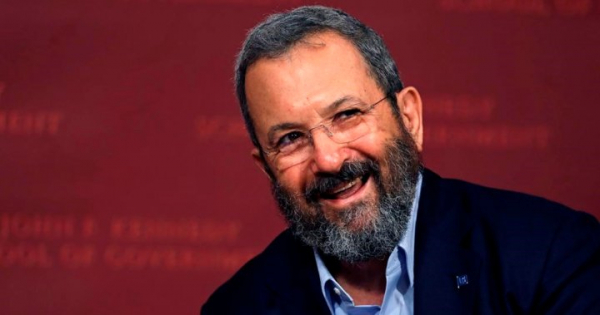"Global Security Focus in Halifax as Leaders Convene, With Eyes on Gaza Conflict"
Leaders from democratic nations have gathered in Halifax for the annual Halifax International Security Forum, a three-day conference focusing on global security, with a particular emphasis on the Ukraine war. However, discussions on the ongoing conflict between Israel and Hamas are anticipated, especially during a session on Saturday featuring former Israeli Prime Minister Ehud Barak in conversation with a PBS correspondent.
As the forum unfolds, the Gaza Strip remains a focal point of concern, with ongoing street battles and a significant number of individuals connected to Canada seeking to flee the region. The recent escalation saw Hamas militants entering Israel on October 7, resulting in casualties and hostage-taking. Israel's response, marked by airstrikes and a ground offensive, has led to a substantial number of casualties, prompting international calls for a ceasefire.
Former Prime Minister Ehud Barak, a key participant in the conference, has defended Israel's actions, asserting that the conflict is just and suggesting that other nations, including the United States, would react similarly to a cross-border attack with mass casualties. Barak's perspective adds a layer of complexity to the discussions, given his background as a former military chief of staff and his involvement in peace negotiations during his time in office.
Barak's political history, from serving as a cabinet minister under Prime Minister Yitzhak Rabin to his tenure as the 10th prime minister of Israel, is notable. His involvement in peace negotiations, including the Camp David 2000 summit, reflects the multifaceted nature of the issues being addressed at the forum, where global security concerns intertwine with regional conflicts and historical complexities.
"Halifax International Security Forum: Navigating Global Challenges Amidst Ukraine War Focus"
As leaders convene in Halifax for the annual International Security Forum, the spotlight is firmly on the Ukraine war, with a deliberate choice to keep the theme centered on this pressing issue. The forum, presided over by Peter Van Praagh, includes both on-the-record plenary sessions and off-the-record evening discussions exclusively for delegates. While the majority of open sessions are dedicated to the Ukraine conflict and its broader implications, the choice to maintain this focus is not without strategic consideration.
Van Praagh, in a recent news release, explained the decision to keep the emphasis on Ukraine, stating that a shift to the Gaza conflict would play into the agenda of non-democratic nations. With Russian President Vladimir Putin attempting to divert attention and support away from Ukraine, the forum aims to unite democracies against this multi-front attack.
The thematic focus of open sessions underscores the belief that a Ukraine victory against Russia would yield wider benefits for democratic nations. The first plenary session, titled "Making the World Safe Again: Victory in Ukraine," features Canadian Defence Minister Bill Blair, U.S. Senators James Risch and Jeanne Shaheen, and Oleksandra Matviichuk, a Ukrainian human rights lawyer. Risch and Shaheen, senior members of the U.S. Senate foreign relations, armed services, and appropriations committee, form part of the annual congressional delegation attending the forum.
Additional discussions involve key figures such as Penny Pritzker, the United States special representative for Ukraine's economic recovery, and Roger Carstens, special presidential envoy for hostage affairs, both from the U.S. Department of State. As the forum addresses complex global challenges, the deliberate focus on Ukraine reflects a strategic alignment of democratic nations against external threats and highlights the interconnected nature of security issues in the contemporary geopolitical landscape.
"In conclusion, the Halifax International Security Forum unfolds against the backdrop of a deliberate focus on the Ukraine war, reflecting a strategic choice to rally democracies against external threats. As leaders engage in on-the-record plenary sessions and off-the-record discussions, the forum underscores the interconnected nature of global security challenges. The decision to maintain the spotlight on Ukraine, despite the ongoing conflict in Gaza, is rooted in the strategic objective of preventing the diversion of attention by non-democratic nations, particularly led by Russian President Vladimir Putin. The thematic emphasis on a potential Ukraine victory as a catalyst for broader democratic benefits permeates discussions, fostering unity among democratic nations in addressing multi-front challenges. As the forum navigates complex geopolitical dynamics, its outcomes will likely shape the collective response of democratic nations to evolving global security issues."






